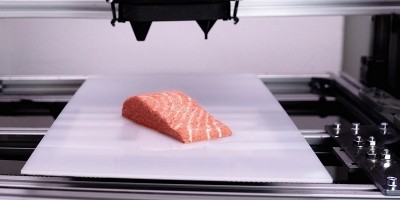News in brief
BLUU Seafood raises EUR 16 million in Series A funding to bring cultivated fish to market

The latest Series A funding was led by Sparkfood, a subsidiary of Sonae, and by LBBW VC. Further participants in the round were Asian investor SeaX Ventures and other VCs such as Manta Ray Ventures, Norrsken VC, Delivery Hero Ventures, Innovationsstarter Fonds Hamburg GmbH, and Dr. Oetker.
In total, BLUU Seafood has raised more than EUR 23 million since its founding three years ago. With the fresh money, the company will focus primarily on the regulatory approval of its first products, in addition to expanding its research work and initiating pilot production. The main focus will be on hybrid products such as fish balls and fish fingers made from cultivated fish cells. The start-up plans its market entry in Singapore, where the sale of cultivated chicken has already been approved by regulators in 2020, making it the ideal launch pad for BLUU’s cultivated fish, which the company expects to get approved by 2024.
The Berlin-based start-up’s fish fingers and fish balls contain cultivated fish cells as the main ingredient. Plant proteins are added to optimize cooking behaviour and mouthfeel. Bluu Seafood has also developed first prototypes of more complex products such as fillets and sashimi. The company's products are made using animal serum‐free growth media and are based on proprietary, non‐GMO trout and salmon cell lines.
Bluu Seafood says it aims to combine cell and food technology to grow a variety of sustainable, tasty seafood products directly from animal cells without compromising animal welfare and with a significantly smaller environmental footprint than conventional fishing. Initially, the company will focus on B2B partners, most likely high-end restaurants, and food services.
In the US, cultivated meat and fish are also about to be launched into the market after recent USDA and FDA approvals for cultivated protein start-ups GOOD Meat and UPSIDE Foods. With the final approval of the US Department of Agriculture granted a few days ago, the sale is now officially allowed. BLUU Seafood, too, has initiated the approval process with the FDA.
The company hopes Europe will be the next to follow and is currently preparing to open its pilot production plant with construction work expected to be completed by autumn this year. With this plant, BLUU Seafood will leave lab scale and reach another important milestone by scaling up production into larger fermenters of up to 500 litres.
Dr. Sebastian Rakers, Co-Founder and CEO of BLUU Seafood, said: "On the one hand, our highly successful Series-A demonstrates the enormous future potential that lies in cultivated fish as a platform technology for sustainable animal protein. On the other hand, it also underlines the strong scientific development that BLUU Seafood and our excellent team have delivered so far. Together with our strong, international investor base, we can start the next stage of development and bring our first products to market."
Simon Fabich, Co-Founder of BLUU Seafood, added: "The momentum in the market is huge, exemplified by the recent regulatory approvals for cultivated food in the US. I am very excited about the upcoming launch of first cultivated products into the American market. Our vision is becoming reality. More and more, forward-looking investors have come to realize this, and the flow of capital will increase massively. BLUU Seafood, too, will continue to raise funds and help lead this revolution as a European player."




























